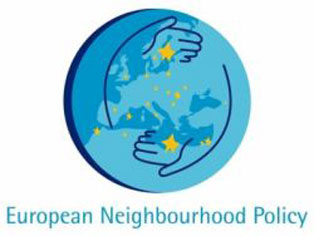Interpresnews
The European Commission and the High Representative of the Union for Foreign Affairs and Security Policy published on 20 March 2013 the annual “neighbourhood package”, consisting of a joint communication making an assessment of the ENP implementation in 2012 a report on the “Partnership for Democracy and Shared prosperity” with Southern Mediterranean, an Eastern Partnership progress report, 12 country reports, including one on Georgia.
There was intense EU-Georgia political dialogue in 2012. Negotiations on an EU-Georgia Association Agreement, including a Deep and Comprehensive Free Trade Area, made significant progress during the year. Georgia also advanced in implementing the Visa facilitation and readmission agreements. Progress was registered in fighting corruption and in deepening freedoms of assembly and association. October 2012 elections marked a genuinely democratic transfer of power. Concerns persisted about judicial reform and the media sector.
Georgia acted on most of the key recommendations in the last year's ENP progress report. It ensured broadly free and fair parliamentary elections. It also strengthened the freedom of expression and opinion; continued to reform the justice system and advanced sectoral reforms and regulatory approximation to the EU acquis. It actively participated in the Geneva discussions and took measures to improve the living conditions of internally displaced persons (IDPs), with the support of the EU; it also renewed its commitment to a genuine engagement with the breakaway regions.
Progress also needs to be made on the remaining key recommendations. On the basis of this year’s report and with a view to sustained implementation of the ENP Action Plan in 20131, Georgia is invited to:
• address shortcomings in the electoral law as identified by the OSCE Office for Democratic Institutions and Human Rights (ODIHR), ahead of the 2013 Presidential election and 2014 local elections;
• ensure respect for the roles of the Prime Minister and President under the constitution; ensure that constitutional amendments, if contemplated, are subject to comprehensive consultation domestically and with the Council of Europe’s Venice Commission, to ensure that they stand the test of time;
• reform the justice system to ensure the full independence of the judiciary, bringing criminal justice policies and practices into line with Council of Europe standards; revise rules on administrative detention in compliance with fair trial norms; and take the recommendations of the Public Defender’s Office into account in policy-making;
• ensure that criminal prosecutions are conducted in a transparent and impartial manner, free of political motivation, in order to avoid any perception of selective justice;
• increase the accountability and democratic oversight of law enforcement agencies;
• conduct a thorough, transparent, independent investigation into the use of torture and ill treatment in the penitentiary system; implement structural reforms to prevent future abuse; ensure effective internal and external monitoring of the penitentiary system for the early detection and prevention of abuse and ill-treatment;
• maintain and improve Georgia’s constructive participation in the Geneva International Discussions;
• enhance Georgia’s engagement policy towards the breakaway regions and improve reconciliation/conflict resolution by finding ways to cooperate with the de facto authorities providing financial resources for engagement; take pragmatic and constructive steps (less focused on form and more on content) to encourage trade, travel and investment across the administrative boundary line; review the Law on Occupied Territories;
• continue to strengthen media pluralism and independence, and the freedom of expression and opinion; implement the law on transparency of media ownership; formally extend the duration of the 'must-carry/must-offer' principle;
• continue and intensify dialogue and partnership with the International Labour Organisation (ILO), and build on specific co-operation with the ILO, the business community and trade unions in preparing amendments to the labour code, leading to improvements in labour rights and enhanced social dialogue;
• adopt comprehensive anti-discrimination legislation; ensure that the rights of minorities, including religious minorities, are respected;
• continue to advance sectoral reforms and ensure good quality approximation to the EU acquis, in order to pave the way for finalisation of the Association Agreement, including the DCFTA.




